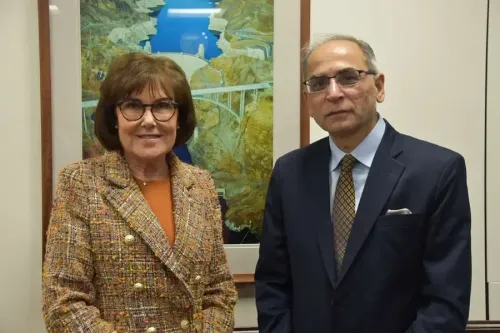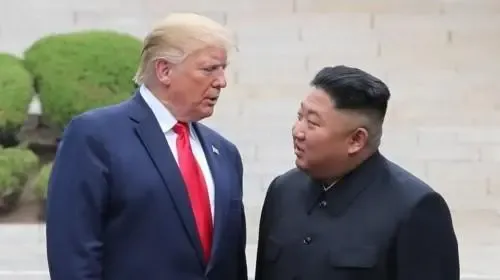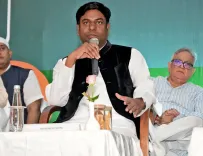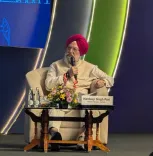What Lies Ahead for South Korea Following Presidential Impeachment?
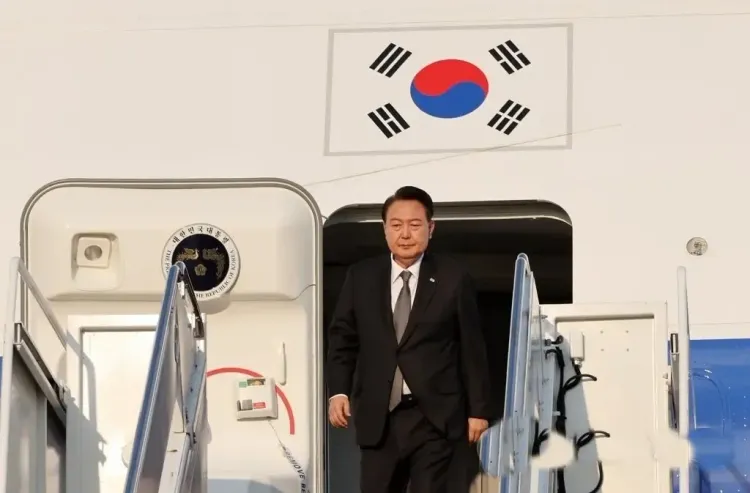
Seoul, Dec 14 (NationPress) In a significant political move, South Korea's parliament voted with 204 in favor and 85 against to pass the second impeachment motion against President Yoon Suk Yeol on Saturday. This decision came after the first impeachment attempt was abandoned just a week earlier due to a boycott by lawmakers from the ruling party.
Following the vote, an impeachment resolution was sent to the President's Office and the Constitutional Court, resulting in an immediate suspension of Yoon's presidential duties.
Once the impeachment resolution is received at his office, Yoon's responsibilities will be instantly halted. In the meantime, Prime Minister Han Duck-soo will act as president until the Constitutional Court reaches a final verdict.
The Constitutional Court has announced it will convene on Monday morning to address the president's impeachment. Moon Hyung-bae, the acting head of the court, assured a swift and impartial trial.
If the court validates the impeachment, a snap presidential election will take place within 60 days. Conversely, if the impeachment is dismissed, Yoon will be reinstated and can resume his official duties.
On Saturday, Han asserted his commitment to ensuring a stable administration, as reported by Xinhua news agency.
However, both the Prime Minister and several key cabinet members face allegations of participating in Yoon's purported insurrection.
Park Chan-dae, the floor leader of the main opposition Democratic Party of Korea, stated that Yoon's impeachment is merely the first step in addressing the fallout from his December 3 martial law declaration, pledging to pursue a comprehensive investigation into Yoon and other alleged 'accomplices of the insurrection.'
This marks the third presidential impeachment in South Korea's modern history. Former conservative leader Park Geun-hye was removed from office by the Constitutional Court in 2017, while former liberal President Roh Moo-hyun was reinstated after impeachment in 2004.
The Constitutional Court has a maximum of 180 days to deliberate such cases; however, it took only 63 days to reach a conclusion on Park's impeachment and 91 days for Roh's case.
According to South Korea's constitution, a minimum of six out of the nine judges in the Constitutional Court must agree to remove an impeached president. Currently, with only six judges on the bench, unanimous consent is necessary to oust Yoon.
The Democratic Party, which holds a parliamentary majority, is actively working to fill judicial vacancies and anticipates that new judges will be appointed soon.
Yoon has been identified by investigative agencies as a suspect in an insurrection case, making him the first sitting president to be prohibited from leaving the country, raising the prospect of his detention.
In a televised address following the impeachment motion's passage, Yoon expressed his determination to serve South Korea, stating, 'I will not give up.'
In his speech on Thursday, Yoon defended his martial law declaration as a necessary governance measure against what he described as the 'legislative dictatorship' of the opposition majority.
Experts have suggested that this might be part of his defense strategy, arguing that the martial law declaration fell within his constitutional authority and was not an unlawful act or insurrection.
He also mentioned that the deployment of troops to the National Assembly was intended to maintain order rather than to disrupt or incapacitate it.
A recent Gallup Korea poll indicated that Yoon's approval rating plummeted by 5 percentage points from the previous week to 11 percent, marking his lowest level of support since taking office.



